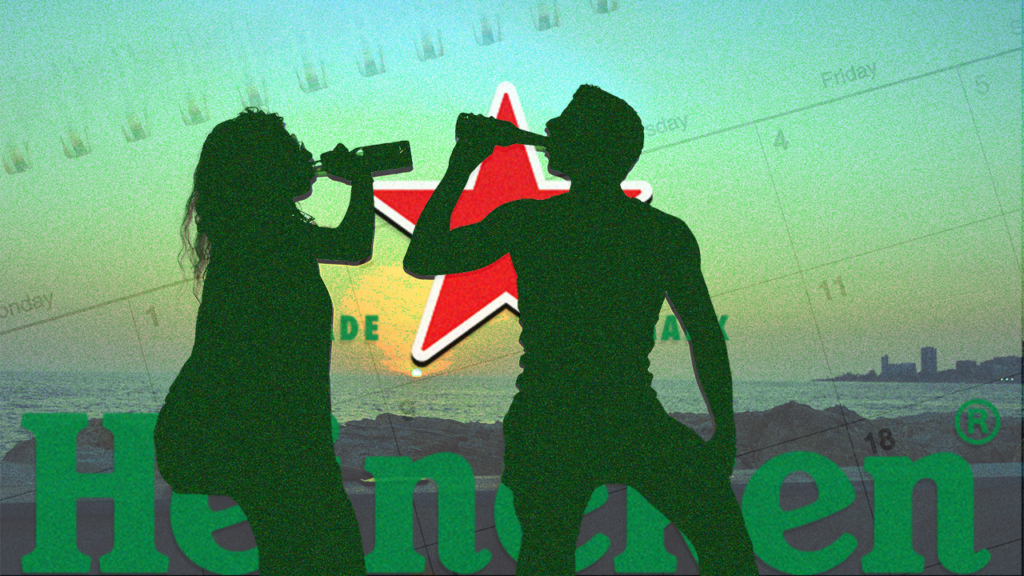After The Great Resignation, Americans have gone back to work but are now “quietly quitting.” In the midst of this, we’re taking a look at what marketers can learn from Heineken’s ‘Calendar Closer,’ a creative take addressing work-life balance.
What Is “Quiet Quitting,” And How Does Heineken’s Calendar Closer Address It?
Quiet quitting is more of an aggregate lifestyle shift than a trend. Just like the millions of Americans who decided to work remote permanently, many Americans are choosing to continue to do their jobs—but impose their limits on how much “extra” they are willing to give their employers gratis. That means not pulling all-nighters or competing on how little sleep they get to make deadlines. It is also about a shift in the American zeitgeist around work ethic: After the pandemic’s economic uncertainty and The Great Resignation, workers may be less afraid of losing their jobs or leaving an employer who discourages work-life balance than ever before. In a world where many workers work at home, some feel they never actually leave the office. The Calendar Closer campaign taps into workers’ desire to disconnect at a reasonable hour and feel good about it. The Calendar Closer landing page reminds viewers that we’re working more now than ever before and encourages them to schedule just one more meeting—with up to three friends—for a chance to win a lifetime supply of Heineken.
What Marketers Can Learn From The Calendar Closer
Heineken recently named Dentsu as its agency of record for media and recently experienced a 5% dip in retail sales, which it attributes to supply chain issues. Addressing the elephant in everyone’s room —“always on” connectivity often means “always working”—Heineken is shifting away from conventional themes in beverage advertising: showing groups of happy, gorgeous people out in nature enjoying a brew. The Calendar Closer acknowledges that you are not only likely stuck in front of your laptop but that it isn’t going to change any time soon. At a minimum, you can do a Zoom meeting with people you want to see. The Calendar Closer ads have been appearing on business-focused platforms, like WeTransfer, seemingly to reach workers when they are most likely to be yearning for a break but realizing that they won’t be able to venture far from their laptop. Marketers can glean several insights from The Calendar Closer Campaign:
Reaffirm, Don’t Explain Context
The Calendar Closer is about triggering recognition, not over-explaining. Obviously, you’re at your desk or on your bed with your laptop and you are working too much. We don’t need to go further into that. We know you can’t leave, and we won’t insult you with pictures of happy people doing what you can’t. That affirmation supports the idea that Heineken is for real people with jobs that can’t ever really leave (figuratively or physically), not the fortunate few.
The Solution First, Sales Second
One of the biggest challenges for remote workers is saying “no,” especially when their calendars are often open for the world to see. The semi-subversive idea behind The Calendar Closer is that the one unrestricted freedom many remote workers have is closing off time on their calendar—so bosses, colleagues and clients cannot schedule a spot. Instead, the copy encourages workers to “schedule just one more meeting,” but with friends. It’s a simple solution that can happen instantly, and it solves a big problem for the quiet quitter: finding a simple way to make work-life balance happen quickly.
Make Incentives Payout Instantly
Anyone can find a coupon. However, the Calendar Closer’s game element—the reward being a lifetime supply of beer—means that when you schedule more time for you and your friends, you have a better chance of winning a big, tantalizing reward. That means The Calendar Closer is addressing two of remote workers’ biggest problems – isolation and overwork—just by putting their names in a virtual hat and asking them to schedule some human time.

